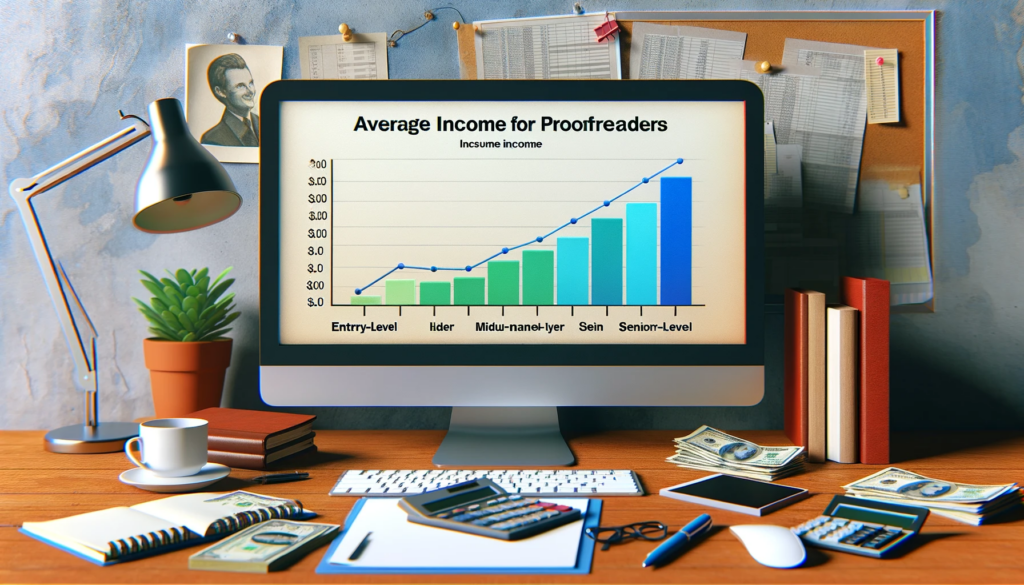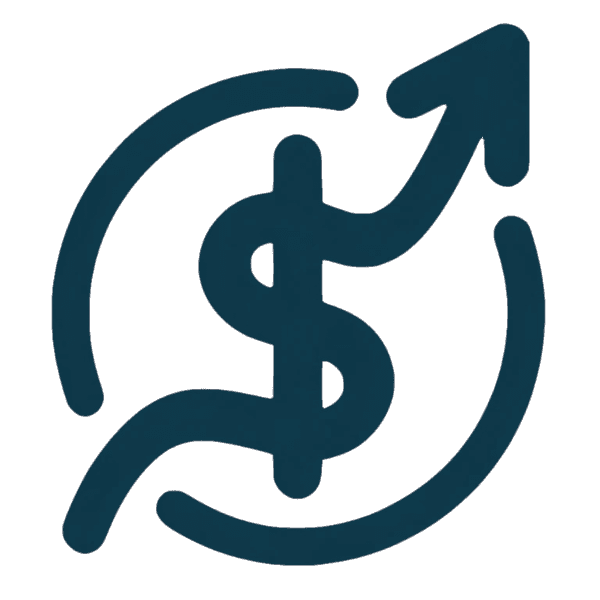In the realm of written content, the role of a proofreader is both critical and often understated. As the final line of defense against grammatical faux pas, punctuation mishaps, and spelling blunders, proofreaders ensure that the written word not only communicates effectively but also maintains a standard of professional excellence. This meticulous scrutiny is not just a matter of dotting i’s and crossing t’s; it’s about preserving the integrity and clarity of the message conveyed. As the world increasingly pivots towards digital content, the demand for proficient proofreading services has surged across various sectors. From the polished prose of publishing houses to the rigor of academic thesis, and the dynamic verbiage of digital content creation, the necessity for error-free writing has never been more pronounced. For those looking to step into this burgeoning field, opportunities abound, especially on platforms like FlexEarnings.com. This innovative job listing and freelance marketplace provides a gateway for individuals to delve into the world of proofreading, offering a plethora of options to earn and grow professionally in this vital field.
| Experience Level | Typical Qualifications | Common Industries | Income Growth Potential | Hourly Rate ($) | Daily Rate ($) | Weekly Rate ($) | Monthly Rate ($) | Yearly Salary ($) |
|---|---|---|---|---|---|---|---|---|
| Entry-Level | Basic proofreading training/certificates, good command of language | Blogging, general online content, local magazines | Steady as skills and reputation develop | 15 | 120 | 600 | 2,400 | 28,800 |
| Mid-Level | Several years of experience, specialized training or certifications | Publishing houses, academic journals, corporate communications | Higher with specialization and client network expansion | 25 | 200 | 1,000 | 4,000 | 48,000 |
| Senior-Level | Extensive experience, possible expertise in a specific sector, advanced certifications | Legal, medical, technical documents, high-profile publishing | Top tier, especially with niche expertise and high demand | 35 | 280 | 1,400 | 5,600 | 67,200 |

The Role of a Proofreader
The role of a proofreader, often perceived as a mere grammar checker, is in reality a multifaceted and intricate task. At its core, proofreading involves a thorough examination of written content to identify and correct errors in grammar, punctuation, spelling, and formatting. This process is essential in ensuring that the final piece of writing is not only accurate but also presents a coherent and professional appearance. A proofreader acts as the last line of defense before a document reaches its audience, making their role pivotal in upholding the quality and credibility of the content.But what does it take to excel in this role? The skillset of a successful proofreader extends beyond a strong command of language. Attention to detail is paramount; a proofreader must be able to spot the smallest of errors that others might overlook. A good grasp of grammar and syntax, and an eye for consistency in style and formatting are essential. Additionally, proofreaders often need to be familiar with various style guides (such as APA, MLA, or Chicago Manual of Style), depending on their field of work.Qualifications for a proofreader can vary. While some may have formal education in languages, journalism, or communications, others may come from different backgrounds but possess a natural aptitude and passion for language. Many proofreaders develop their skills through experience and continuous learning. Certifications in proofreading and editing, available through various professional organizations and online platforms, can also provide an edge. Aspiring proofreaders can find a wealth of resources and opportunities to hone their skills on websites like FlexEarnings.com, where they can engage with a community of professionals and start building their career in proofreading.

Average Income Statistics
When it comes to the financial aspect of proofreading, the income can vary widely based on a multitude of factors. However, some general statistics can give aspiring proofreaders an idea of what they might expect to earn in this field. It’s important to note that these figures can differ significantly based on location, experience, and the specific market in which a proofreader works.
As of my last update in April 2023, data from the Bureau of Labor Statistics (BLS) and other reputable sources like PayScale provided insights into the average income of proofreaders. In the United States, for instance, proofreaders on average could expect to earn somewhere in the range of $35,000 to $60,000 annually. Entry-level positions often start at the lower end of this spectrum, while more experienced proofreaders, especially those with specialized skills or working in specific industries, might earn at or above the higher end.
Globally, the picture can vary even more. Countries with a high demand for English content, such as those in Western Europe and parts of Asia, often see competitive rates for proofreading services. In contrast, regions with a lower cost of living or less demand for English-language content might see lower average incomes for this profession.
The rise of digital platforms and freelance marketplaces like FlexEarnings.com has also played a significant role in shaping the income potential for proofreaders. Freelancers have the flexibility to set their rates (often on a per-word, per-hour, or per-project basis) and can take on projects from anywhere in the world, opening up opportunities to earn more based on the quantity and type of work they choose to accept.
It’s also worth noting that the proofreading field is not immune to the broader economic factors that influence job markets globally. Economic shifts, the growth of remote work, and the increasing importance of digital content can all impact the demand for proofreading services and, consequently, the income potential in this field.

Freelance Proofreading
Freelance proofreading represents a significant and increasingly popular sector in the world of editing and publishing. The flexibility of working as a freelancer appeals to many, allowing for control over workload, clients, and, importantly, income. In the realm of freelance proofreading, professionals have the autonomy to set their rates, which can vary based on several factors including experience, the complexity of the work, and market demand.
Freelancers typically set their rates in one of three ways: per word, per hour, or per project. Per-word rates are common for large projects where the length of the content is the main factor, while hourly rates might be preferred for tasks where the amount of work required can vary. Project-based rates are often used for jobs with a well-defined scope and clear deliverables. Experienced freelancers might adjust their rates based on the subject matter’s complexity or the turnaround time required by the client.
Finding work as a freelance proofreader requires a mix of skill, networking, and a good understanding of where to look for opportunities. Online platforms and freelance marketplaces have become a primary resource. Websites like FlexEarnings.com provide a hub where freelancers can connect with potential clients, showcase their skills, and find a diverse range of proofreading jobs. These platforms often offer a streamlined process for managing projects, from initial contact with a client to payment upon completion of the work.
Networking also plays a crucial role in a freelancer’s career. Building a professional network through social media, industry events, and professional organizations can lead to referrals and repeat business. Additionally, having a robust online presence, such as a professional website or a portfolio on platforms like LinkedIn, can attract clients seeking proofreading services.
The key to success in freelance proofreading lies in balancing the search for new clients with maintaining high-quality work for existing ones. As the industry grows, so does the competition, making it essential for freelancers to continually hone their skills, adapt to market needs, and build a reputation for reliability and excellence.

Maximizing Earnings as a Proofreader
For proofreaders seeking to enhance their earnings, there are several strategies to consider. The key lies in differentiating oneself in the market, continuously improving skills, and building a strong professional network. Here are some effective ways to maximize earnings in the field of proofreading:
- Specialize in a Niche: One of the most effective ways to increase earning potential is to specialize in a specific niche. This could be legal, medical, technical, academic, or even creative writing like novels and scripts. Specialization often allows for higher rates as the work requires a more detailed understanding of the subject matter and its unique style and terminology.
- Gain Additional Certifications: Earning certifications in proofreading or editing from recognized institutions can significantly boost credibility. These certifications not only enhance skills but also signal to potential clients a serious commitment to the profession and a standard of excellence.
- Build a Strong Portfolio: A robust portfolio showcasing a range of work can attract higher-paying clients. It’s important to include a variety of projects that demonstrate skill and versatility. This portfolio can be showcased on personal websites or professional platforms like LinkedIn, and also on job listing and freelance marketplaces such as FlexEarnings.com.
- Leverage Online Platforms: Utilize online platforms and freelance marketplaces not just for finding work, but also for networking and building a reputation. These platforms can be a source of consistent work and can help in building long-term relationships with clients.
- Engage in Continuous Learning: The world of writing and publishing is ever-evolving. Staying updated with the latest trends, style guides, and editing tools is crucial. This could involve attending workshops, webinars, or even enrolling in online courses.
- Networking: Building a network is invaluable in this field. This includes connecting with other proofreaders, writers, editors, and professionals in the industry. Networking can lead to referrals, collaborations, and insights into better-paying opportunities.
- Efficient Time Management: For freelancers, time is money. Efficient management of time can allow for taking on more projects without compromising on quality. This involves setting realistic deadlines, using proofreading tools for initial checks, and creating a structured work routine.
- Marketing Yourself: Don’t underestimate the power of marketing. This includes everything from having a professional website to engaging on social media, and from writing a blog to giving webinars or talks. A strong online presence can significantly increase visibility and lead to more lucrative opportunities.
By focusing on these strategies, proofreaders can not only enhance their earning potential but also ensure a steady and satisfying career trajectory in this dynamic field.


